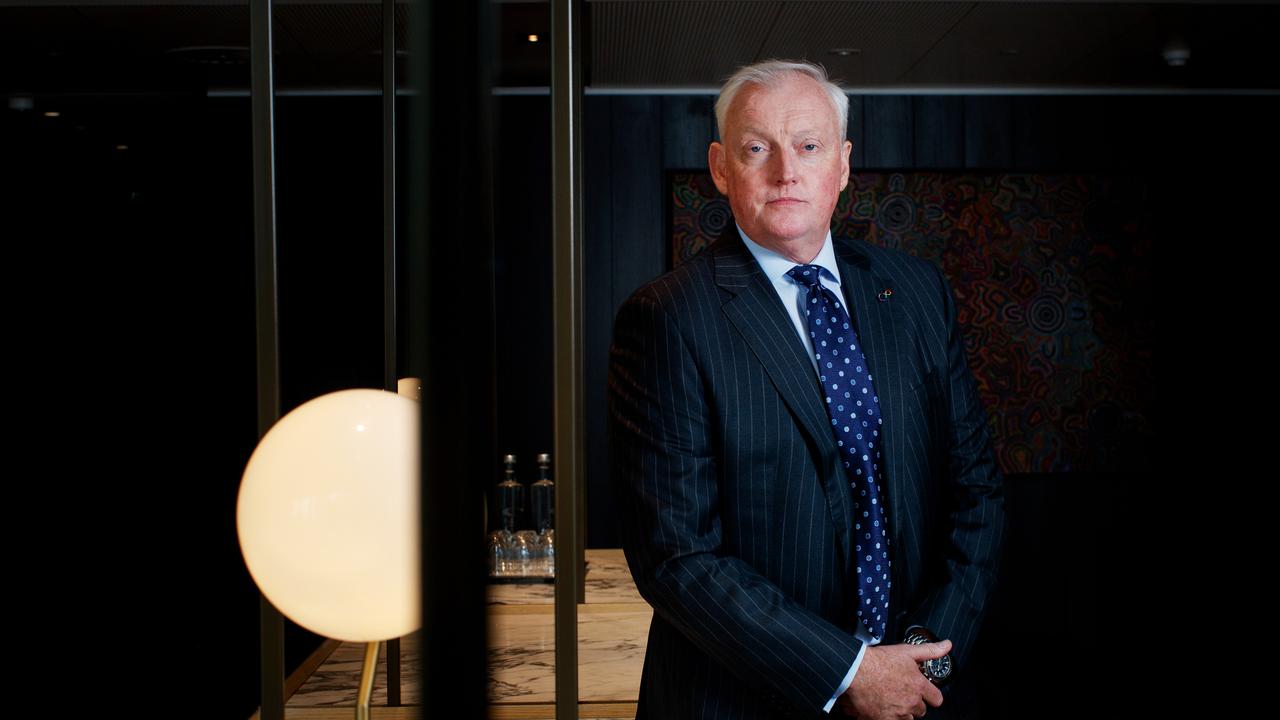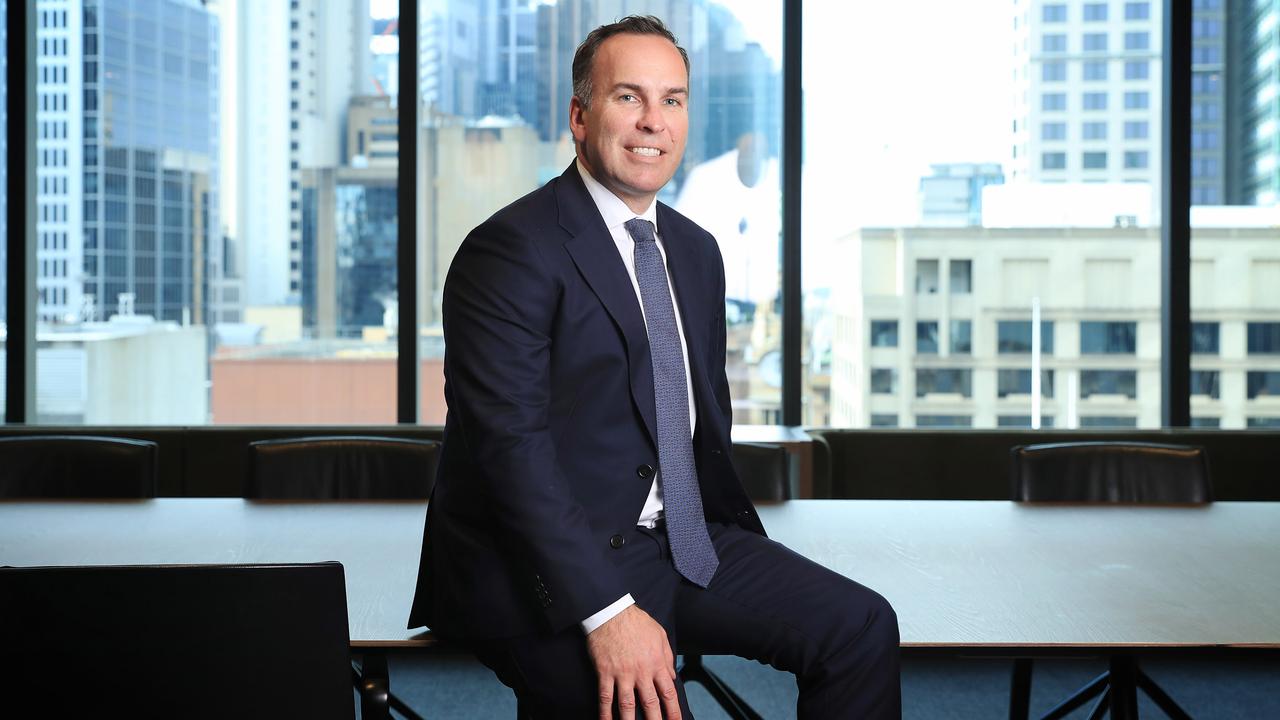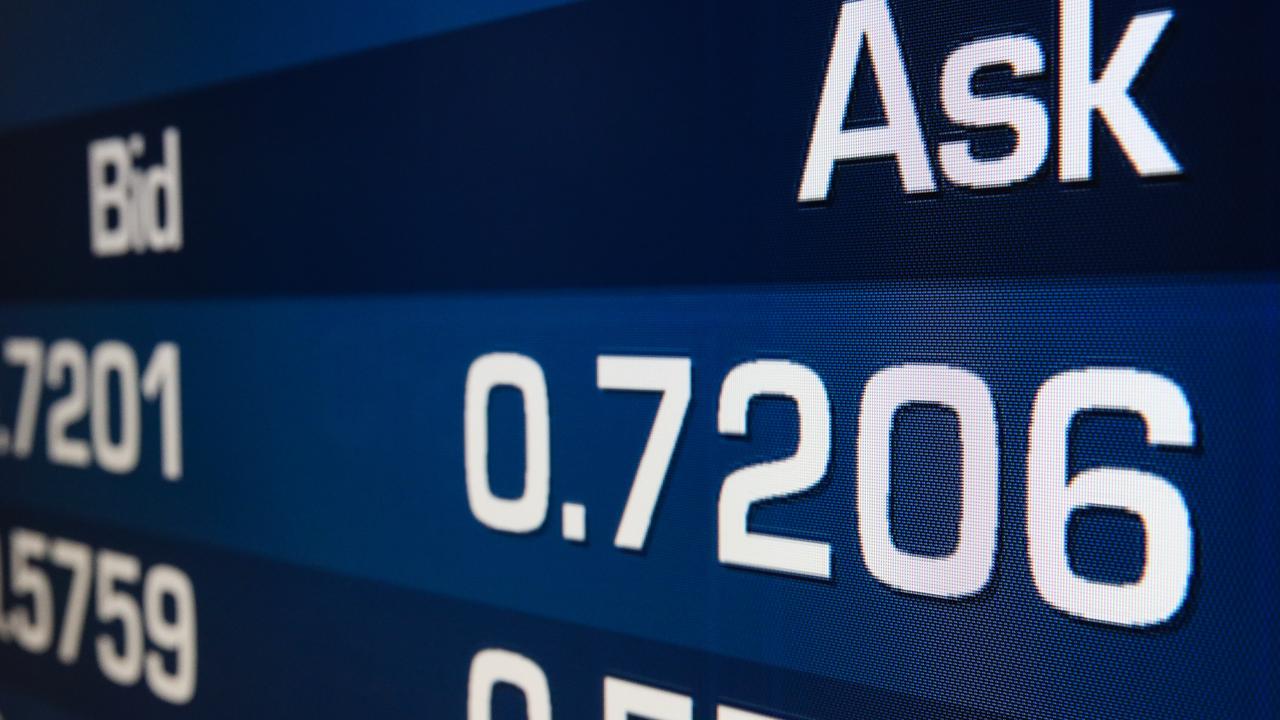Perpetual: Time runs out for the serial acquirer
The fund manager thought Pendal was the answer to becoming a takeover target. Last year’s unpopular buyout only made it a more obvious one.

Business
Don't miss out on the headlines from Business. Followed categories will be added to My News.
At around 18 years its junior, the one-time Sydney chemist Washington H. Soul Pattinson is a relative upstart to the blue-blood Perpetual.
However, the two represent some of Australia’s oldest companies and for one at least – Perpetual – time is fast running out.
The Todd Barlow run Washington these days is the $12bn-plus diversified fund manager with holdings spanning TPG Telecom, mining and funds management. In recent months it has become the single biggest shareholder in the much smaller fund manager-to-wealth adviser Perpetual, amassing a 10 per cent stake.
The reason for this: Washington made a $3.06bn buyout approach to Perpetual’s board led by Tony D’Aloisio three weeks ago. The proposal, by the way of a scheme of arrangement represents $27 a share, but is a complex affair.
The offer involves the spin out of Perpetual’s funds management arm and has been given an indicative value of $2bn. Perpetual late on Wednesday knocked back the offer saying it materially undervalues the company.

Prior to Washington making known it had made the buyout approach, Perpetual on Wednesday flagged it had been looking to squeeze out better value through a possible spin out of the funds management arm from the wealth management and corporate trust arm. This would crease two listed companies.
This was the last roll of the dice for the funds house that has never reached full potential and whose valuation has regularly fallen short of the sum of its parts.
However, this was only part of the story. The split plan was Washington’s idea to begin with when it approached Perpetual’s board with a buyout in late November.
Serial acquirer
The 135-year-old Perpetual can trace its heritage back to Edmond Barton, Australia’s first Prime Minister, and Sydney’s Fairfax family, but life has come at it fast in recent years.
It has been a serial acquirer of boutique global funds businesses in the past decade with the aim of getting bigger offshore and tapping green investments.
A perennial underperformer, Perpetual too was caught in the middle of a three-way tussle one year ago when it was powering ahead with its own costly effort to acquire Pendal Group.
There Phil King’s-listed funds house Regal Asset Management lobbed a $30 a share bid for Perpetual, later increased to $33, but on the condition Perpetual dropped its own bid for Pendal.
Before then, Perpetual had taken private equity approaches for its well-regarded corporate trust and wealth arm. Perpetual knocked-back Regal’s $2.1bn offer and in January sealed the Pendal share and cash buyout for $2.4bn.
Since then, Perpetual’s shares have fallen around 10 per cent giving it a valuation on Wednesday of $2.7bn.

At the time of the Pendal acquisition, Perpetual’s investors were urging chief executive Rob Adams not to push ahead given the risk the company would be given even more of a lower-growth valuation to reflect the bigger asset management company. By folding in Pendal’s funds business with its own, this would swamp the higher valuation given to Perpetual’s quality corporate trust and wealth arms.
In short, Perpetual’s Pendal buyout represented one challenged business buying another challenged business. And there is still a long way to go to get full benefits from the integration.
The deal too also saw debt on Perpetual’s balance sheet jump from $261m, to $745m.
Perpetual’s annual meeting in October resulted in nearly 19 per cent of shareholders voting against the remuneration report – falling short of a shareholder strike, but enough for a protest to be sent.
There was a six per cent jump in Perpetual’s shares on Wednesday to $23.76, with investors already banking on a plan to unlock value. Washington’s takeover proposal was disclosed after the market closed and is likely to see Perpetual’s shares trade higher on Thursday morning.
The Washington plan still represents a hefty premium to the closing price. However, it is built on a lot of blue sky for the valuation of the fund’s arm.
Cost cutting
JPMorgan says Perpetual’s asset management arm could be worth $1.9bn as a stand-alone business, while the combined corporate trust and wealth arms would be as much as $2.2bn, with both likely to trade at a higher market valuation on its own. Today’s $2.7bn market valuation for Perpetual shows how much investors are discounting asset management.
Washington’s carrot to investors however comes down to deal structure. In the event Perpetual tries to go it alone, its shareholders will hold the tax implications of the demerger and debt will be held on the much smaller balance sheet. Washington, however, says it can absorb both debt and tax issues.
Washington too would be ruthless in costs, with the days numbered on Perpetual’s famous silver service for in-house visits. So too would be asset sales of parts of the global corporate trust and some wealth lines, potentially the life insurance line.
Perpetual now finds itself in a tight corner. And this time its storied history might not get it out.
Funds management remains a tough business as margins continue to be crunched. More industry funds that control the big investment mandates are bringing their expertise in-house and more fund flows are going into private asset classes or index-style funds.
Nor does Perpetual’s lavish Sydney office sit well with the austerity of the big super funds.
The addition of Pendal doubled Perpetual’s global funds under management to $200bn, although it didn’t make it a better business.
Revenue margins were crunched last year in fixed income and multi-asset classes while equities only lifted given the addition of Pendal’s higher-margin products – it remains to be seen how long that lasts.
With the prospect of interest rates holding higher for longer, the coming year looks set to be a brutal one for funds managers. Perpetual’s board thought Pendal was the answer to being a takeover target. However, it ultimately made Perpetual a more obvious one.
johnstone@theaustralian.com.au
More Coverage
Originally published as Perpetual: Time runs out for the serial acquirer









